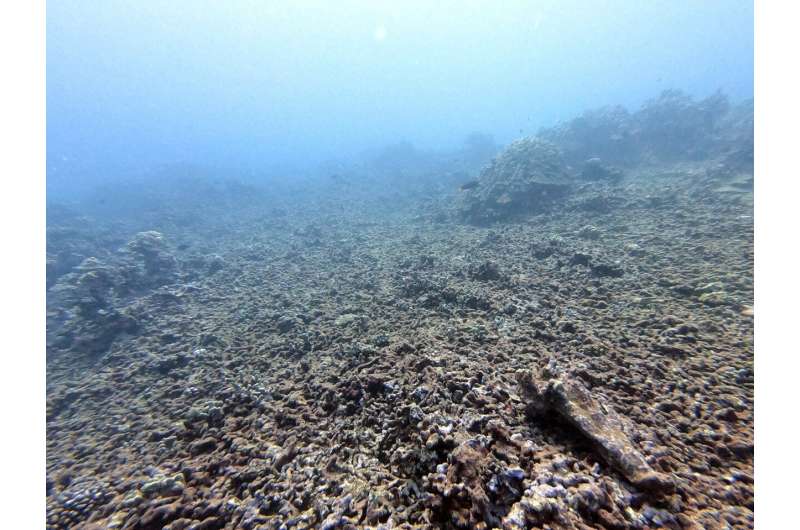Coral reef. Author: Rene Setter (CC-BY 4.0, creativecommons.org/licenses/by/4.0/)
There is more bad news for planet Earth if climate change continues unabated. The new study was published on October 11 in the open access journal PLOS Biology Researchers at the University of Hawaii at Mānoa, in the United States, show that in a worst-case scenario, half of the world’s coral reef ecosystems will face persistently unsustainable conditions in just a dozen years.
The ability of ecosystems to adapt to changes in the environment largely depends on the type and exposure to their specific environmental factors. Coral reefs, in particular, are sensitive to these unfavorable environmental conditions. However, the timing of environmental suitability has been a matter of debate.
Using CMIP5, an experimental framework designed to compute global models designed to improve climate change knowledge, the researchers looked at the global predictions of the five environmental stressors from historical scenarios to predictions for the year 2100. These stressors are included sea surface temperature, ocean acidificationtropical storm, land use and population projections.
“While the negative impact of climate change on coral reefs are well known, this study shows that they are actually worse than expected due to a broad combination of stressors caused by climate change,” said lead author Renee Sater, a doctoral student at the University of Hawaii at Mānoa. “It was also instructive to find that coral will face with multiple stressors, creating an even greater obstacle and challenge to overcome in order to increase the chance of survival.”

An unhealthy coral reef. Author: Rene Setter (CC-BY 4.0, creativecommons.org/licenses/by/4.0/)
Setter and his colleagues found that under a business-as-usual scenario, 2050 is the average year when environmental conditions are projected to become unsuitable for the world’s coral reefs when considering a single stressor. When multiple stressors are considered, the date drops to 2035. Furthermore, by 2055, the majority of the world’s coral reefs (99%) are projected to face unsustainable conditions based on at least one of the five stressors studied. By 2100, 93% of global reefs are expected to be threatened by two or more stressors identified by researchers.
“We know corals are vulnerable to growth sea surface temperature and marine heat from climate change. But it’s important to include the full anthropogenic impact and the many stressors coral reefs are exposed to to better understand the overall risks to these ecosystems,” added co-author Eric Franklin, associate professor at the University of Hawaii at Mānoa. “This has big implications for our native Hawaiian reefs. , which are key to local biodiversity, culture, fisheries and tourism.”
The research team is now preparing to move on to the next phase of its work. They will take a closer look at how climate change is predicted to affect individual coral species. By identifying which species are more likely to survive under adverse conditions and which may be more vulnerable, the team hopes to better understand which species may be more at risk from future stressors.
Combined anthropogenic stressors are shortening the lifespan of coral reefs worldwide, PLoS Biology (2022). DOI: 10.1371/journal.pbio.3001821
Provided
Public scientific library
Citation: Half of the world’s coral reefs could be unsuitable by 2035 (October 11, 2022) Retrieved October 11, 2022, from https://phys.org/news/2022-10-world-coral-reefs-unsuitable- conditions.html
This document is subject to copyright. Except in good faith for the purpose of private study or research, no part may be reproduced without written permission. The content is provided for informational purposes only.






